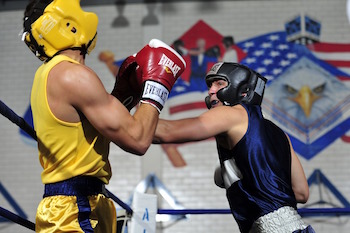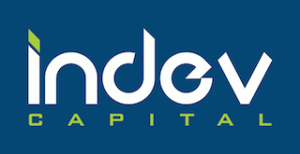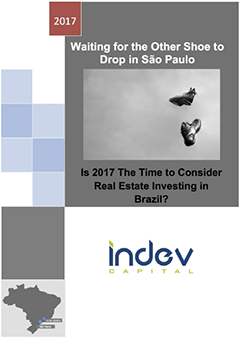
All cultures have their nuances and norms. In particular, the method of negotiation is often “in the blood” of a society. I remember about 15 years ago I was in India for a close college friend’s wedding. One person, call her Amina, was born in Pakistan and lived there until age eight or so, but spent most of her formative years in Los Angeles. She was in most ways very American, at least in my mind. But when my group of college friends went shopping in New Delhi, I saw her negotiating like a local, fighting for every last nickel from a poor street vendor. This behavior was in her blood. What was shocking to me was that we were talking literally pennies! Why would a surgeon in Los Angeles haggle over US$2.00 from an Indian street vendor?
Purpose of This Newsletter
As an asset manager in an emerging market, you carry out multiple negotiations to achieve the results you desire. The purpose of this newsletter is to provide a perspective, admittedly an American one, that may help accelerate your negotiations, particularly on transactions where a fast closing is important.
This newsletter seeks to offer a path to minimize the time to reach a mutually agreeable price and terms on a transaction. While the newsletter’s perspective is that of an asset manager alongside a large-scale US or Global investor, it may work for situations with only local capital that possess a sense of urgency. Importantly, this is only a perspective. If you believe this will not work in Brazil and believe the writer is full of *?#!, I accept that and would love to hear your opinion at joseph.williams@indevcapital.com.
Goal in a Negotiation
There is a joke that goes something like this:

An American enters a negotiation with the main objective of getting a deal done.

A Canadian enters a negotiation with the main objective of having a fair process.

A Brazilian enters a negotiation with the main objective of avoiding conflict.
Well, as a reader of this newsletter and a successful professional in Brazil, obviously you do get deals done. In some negotiations, speed to close is a key concern. How does one avoid Brazil’s traditional bid low / ask high dance around each party’s minimum price needed to sell / maximum price to buy? This dance takes time, and time kills deals.
Context and Assumptions – Let’s Pretend We are Purchasing an Asset
 Let’s assume you have done your homework and know that the seller’s alternatives to selling are not attractive. In addition, it is not a hyper competitive bid situation or professional auction. Due to this lack of other options, a transaction will happen. Based on Brazil’s indirect communication style, it is absolutely critical to know that the seller’s options are somewhat limited if a sponsor seeks large-scale overseas capital. Why? In Brazil, people may not lie but they can mislead in a method that only Brazilians can understand and perhaps tolerate. The first step is to analyze the strength of the seller’s alternatives.
Let’s assume you have done your homework and know that the seller’s alternatives to selling are not attractive. In addition, it is not a hyper competitive bid situation or professional auction. Due to this lack of other options, a transaction will happen. Based on Brazil’s indirect communication style, it is absolutely critical to know that the seller’s options are somewhat limited if a sponsor seeks large-scale overseas capital. Why? In Brazil, people may not lie but they can mislead in a method that only Brazilians can understand and perhaps tolerate. The first step is to analyze the strength of the seller’s alternatives.
Hard Issues First
 There will be various points to negotiate. Often in Brazil, the avoidance of the hard issues early in the negotiation is an effort to avoid conflict. Therefore, mutually agreed upon points in the negotiation are done first. If time is on your side and you desire new friends, please start off with the easy points (it is likely you have an adequate number of friends and do not enter business negotiations to gain friends).
There will be various points to negotiate. Often in Brazil, the avoidance of the hard issues early in the negotiation is an effort to avoid conflict. Therefore, mutually agreed upon points in the negotiation are done first. If time is on your side and you desire new friends, please start off with the easy points (it is likely you have an adequate number of friends and do not enter business negotiations to gain friends).
However, if getting a deal done is the main objective, maybe a more efficient way to negotiate the situation is to say the following: “Marcelo, you told me that getting a deal done fast was important to you, correct? If so, can we cover X, Y, Z points up front to see if it makes sense to move forward?”
 You will likely have to do the requisite bate papo, discussing football and politics, before saying the above, but it may allow a window to discuss some key deal points and perhaps even some absolute must requirements on your side to get a deal done. Wouldn’t it help to know now if there were an issue that could kill the deal, and deal with it now as opposed to two to three months of coffee later? (If coffee is a passion and you truly do seek new friends, pictured to the right is a good place I often go.)
You will likely have to do the requisite bate papo, discussing football and politics, before saying the above, but it may allow a window to discuss some key deal points and perhaps even some absolute must requirements on your side to get a deal done. Wouldn’t it help to know now if there were an issue that could kill the deal, and deal with it now as opposed to two to three months of coffee later? (If coffee is a passion and you truly do seek new friends, pictured to the right is a good place I often go.)
Price Negotiation
I have been amazed at the cultural dance on price in Brazil. At least from my limited experience, it appears that all price negotiations start with the seller asking for 5% to 15% more than he is willing to take and the buyer offering 5% to 15% less than he is willing to pay. From this basis, if the two parties spend enough time and the gap does not start off too large, a deal can get done. However, depending on how wide the spread is at the start of negotiations, this can take some time and time often kills deals. Is there a better way that can save time?
An Idea → Just Ask
 As crazy as this may seem, it may make sense to ask the seller the same type of question again: “Marcelo, it is time to talk about price. I’m Brazilian too and we are both familiar with the dance we can do back and forth with your ask being higher than your necessary price and my bid being lower than I am willing to pay. Correct? Have you had a negotiation like this before? Or alternatively, Marcelo, I can tell you the maximum price that I truly can pay and you tell me if that works for you. Which do you prefer?”
As crazy as this may seem, it may make sense to ask the seller the same type of question again: “Marcelo, it is time to talk about price. I’m Brazilian too and we are both familiar with the dance we can do back and forth with your ask being higher than your necessary price and my bid being lower than I am willing to pay. Correct? Have you had a negotiation like this before? Or alternatively, Marcelo, I can tell you the maximum price that I truly can pay and you tell me if that works for you. Which do you prefer?”
This strategy requires the following: one, a larger-than-normal transaction (limited potential buyers); two, a time-constrained seller or outside pressure to get a deal done; and three, full recognition that the seller’s BATNA (Best Alternative To Negotiated Agreement) is not ideal. If the seller chooses the traditional style, you have no choice but to go this method, which is already what would happen anyway.
However, it is likely that sellers would like to hear the maximum and then raise it. You must be TOTALLY clear that the maximum is the absolute maximum before providing this number.
Likely Outcomes
If you are purchasing an asset at a discount, the seller will try to avoid an answer and find an alternative. Hence, it must be clear that you do not have deal heat and would rather pursue other opportunities than pay more than your maximum. You will likely not get an immediate yes, but you may get a hard counter that you could consider, or better yet a reluctant willingness to consider your price. The seller will miss the dance of give and take, so be prepared for an additional 1% of value so they can sleep at night and tell their friends at the club how smart they are. However, most importantly you could save weeks of time and know if a deal is possible or not.
NEXT STEPS
If you are in negotiations or in pursuit of large-scale real estate transactions and desire negotiation strategies, or better yet large-scale capital partners, please reach out to my business partner Ricardo Carvalho at ricardo.carvalho@indevcapital.com. We welcome a conversation. If you have a deal moving, he will even meet for a “cafezinho sem compromisso…”
Happy Belated New Year and Happy Negotiating!




